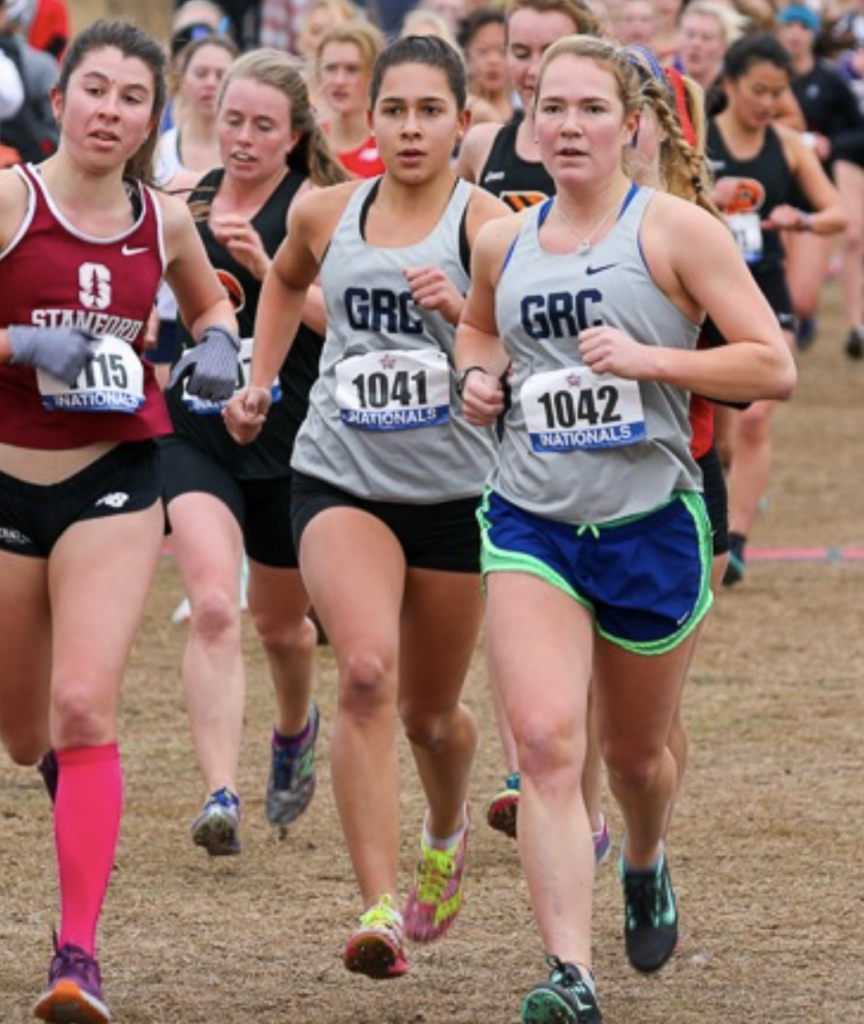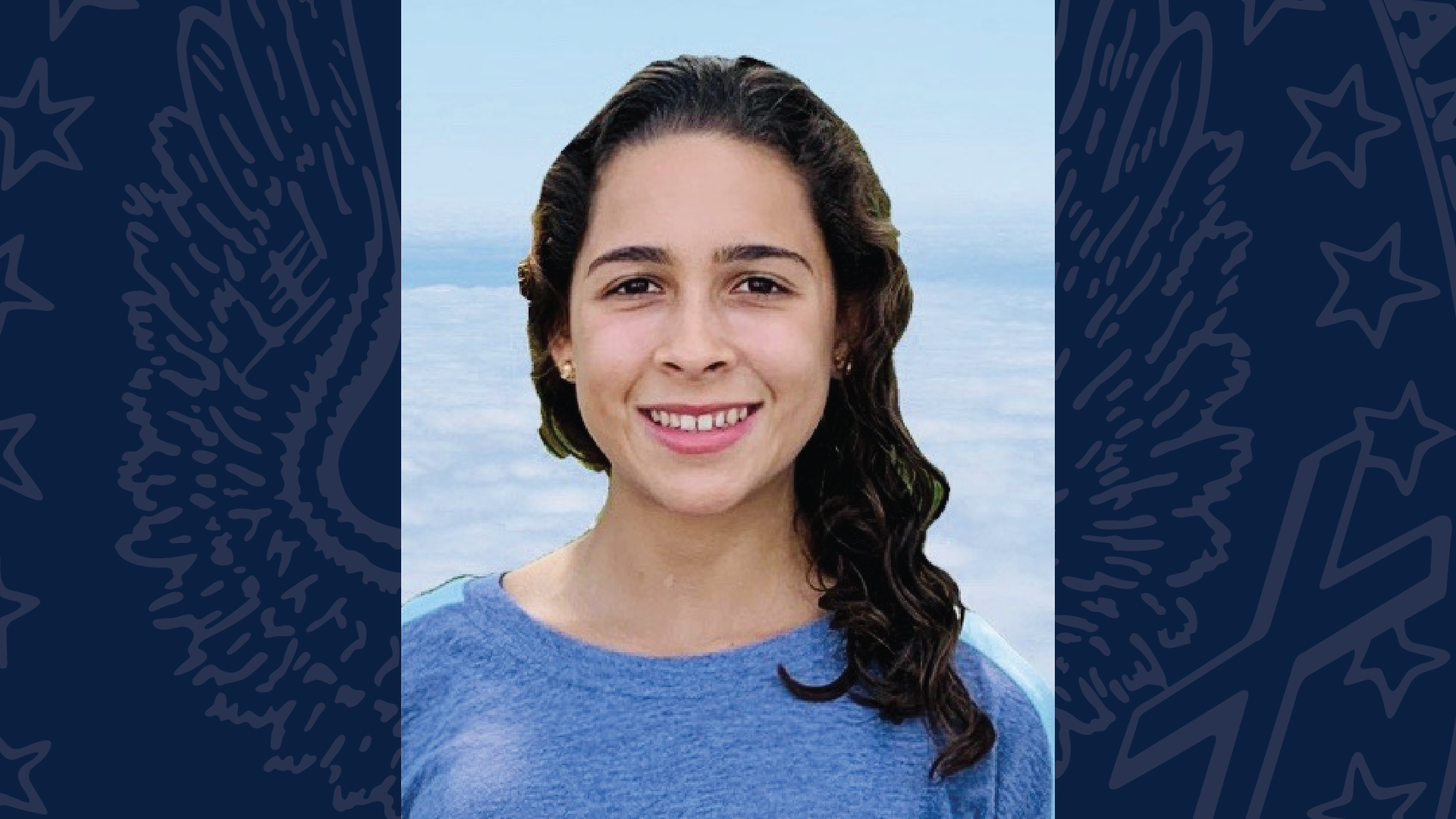Junior Estefania Acosta Conducts Research on Colombia for First-of-Its Kind Database on Latin American Governments, Laws and Institutions
Estefania Acosta (C’23) is conducting research on Colombia for States and Institutions of Governance in Latin America (SIGLA), a multilingual database on legal and political institutions in Latin America. This database is one of the few that provides systematic and clear information on Latin American government, laws, or institutions, which Acosta says has led to challenges as an RA but also underscores the importance of the research.
“Many countries do not have accessible or clear information, which I think has been a result of corruption and weak institutions creating repercussions for the development of Latin America, specifically for those individuals who are most disadvantaged” she explains. “With the context of the problems that caused my Colombian family to immigrate into the United States and the large amounts of asylum seekers coming from Central America and Venezuela, the dissemination of transparent information is incredibly valuable and important.”
Diving into a Database
SIGLA’s core mission is to conceptualize, operationalize and measure key parameters of formal political and legal institutions in Latin America. When fully developed, SIGLA will store and disseminate information in English, Spanish and Portuguese, on nearly 50 political and legal institutions in 20 Latin American countries.
Systematic and user-friendly, SIGLA was started in 2016 by Diana Kapiszewski, the current director of SIGLA, but has been primarily developed and run by Georgetown undergraduate students. The government professor says that “despite their importance, there is currently no single source for systematic, comparable information about the form and function of political and legal institutions in Latin America, but SIGLA fills this lacuna.
“Freely available to scholars, policymakers, businesspeople and personnel from civil society organizations across the Americas and around the world, the SIGLA database democratizes access to systematic data about Latin America’s political and legal institutions,” Kapiszewski explains.
Acosta first heard about SIGLA while she was attending the Government Major Declaration Session in the spring of 2020. During that same semester, she was taking Latin American Government and Politics with Professor Kapiszewski and learned that one of the greatest political problems that Latin America has is the lack of legitimacy, strength and stability of institutions.

Acosta competing in NIRCA Nationals in 2019
“Upon hearing about the political turmoil that many Latin American countries were going through amid the pandemic, I wanted to learn more about the reasons for these issues,” Acosta says. “I had in mind the opportunity Professor McMorrow had mentioned and when Professor Kapiszewski opened the applications, I knew that I wanted to apply to be a part of the SIGLA team.”
SIGLA’s database currently focuses on Brazil, Colombia, and Mexico with the goal of expanding research to all other Latin American countries. Along with two other team members, Acosta’s research is concentrated on the institutions of Colombia. All eight RAs meet weekly to learn about the research they are conducting.
Kapiszewski says that she wanted SIGLA to be built by Georgetown undergraduates because “they are exceptionally good at what SIGLA needs most: careful, informed, intelligent data collection, verification and documentation; and new, outside-the-box thinking about information presentation.
“They understand Latin American institutions, and want to learn more about what they don’t fully understand,” she continues. “They are self-starters, and also recognize the value of teamwork. Georgetown undergraduates are curious, committed and inspirational: it is a pleasure and a privilege to work with them.”
Acosta says that some of the methodological skills developed in her Latin American Government and Politics class in writing research papers or policy papers translated to her work as an RA. She was able to approach research with “an intentional methodology and hypothesis in mind”.
“Apart from growing these skills, Professor Kapiszewski also really encouraged the class and us as RAs to speak up and ask questions,” Acosta continues. “Often during the pandemic, it was easy to turn off the camera, go on mute and stay silent for the rest of a class lecture. However, I felt that Professor Kapiszewski really values all our ideas and has really helped me to be comfortable with asking for help or expressing my thoughts.”
More About Acosta
After she graduates, Acosta is interested in pursuing a degree in law. The junior says that many of the skills she has gained as an RA such as writing, finding evidence and research “will transfer over well to the legal field.”
Acosta also says that her experience as a student in the College has given her the flexibility to explore different areas of interest.
“Coming from a Colombian family myself, one of the areas that I am interested in learning more about is Latin American Politics,” Acosta continues. “As a Government and Economics major, being able to contribute to the transparency of institutions and the laws in Colombia has been extremely rewarding. SIGLA has really expanded my way of thinking and approaching information and the in-depth research has also enriched many of the conversations that I have with my family back in Colombia on any political issue.”
In addition to her research with SIGLA, Acosta is also a member of the Corp Catering service and an avid distance runner for the Georgetown Running Club (GRC) where she runs up to 65 miles a week.
She is also participating in the Capital Applied Learning Labs (The CALL). As part of this program, Acosta is interning with Immigrant Food as part of The CALL experience on top of her Research Assistantship with SIGLA.
Kapiszewski says that Acosta has been “an extraordinary asset to SIGLA.
“She works extremely carefully and is exceptionally effective both working individually and coordinating as part of the team,” the professor continues. “Now too many times to count, she has offered astoundingly astute suggestions and observations in team meetings — cutting through layers of complexity with clear, innovative ideas that simply make one’s jaw drop.”
